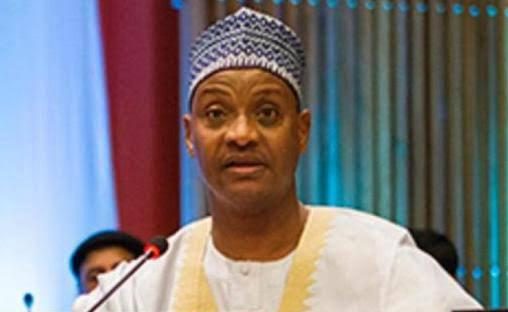
“The basis of every civilisation is wealth – wealth to provide the background of leisure, which in turn is the basis of culture in a commercial world”– John Buchan
The historical task and challenge of leading the Black Race must be accomplished and fulfilled through the creation of the objective conditions at home that would favour the playing of such a role on the world’s stage by Nigeria. This can only be achieved with the building of a strong Nigerian state that is purposefully united towards making the world a better place for all racially oppressed and downtrodden people.
Such a role can only be played effectively and meaningfully with the attainment of a reasonable level of industrialisation of Nigeria. The fulfillment of this obligation should, therefore, be at the core of both politics and governance in the country. Nigeria’s leadership today stands at the crossroads of history to achieve what has hitherto eluded past leaders in the country’s history. It is singularly placed to mobilise and galvanise Nigerians and other Africans towards the “African Renaissance Project”, which is an inevitable result of the demands of the conditions of the Black Race today.
This leadership must combine the intellectual resource and the political understanding of existential factors surrounding this idea to be able to carry such a millennial project forward. An appeal to enlightened leadership is, therefore, the greatest factor that Nigerians could look forward to, towards their rescue and emancipation from the despair of ignominious existence on the periphery of the larger human community that is progressing by leaps and bounds. The Nigerian leadership must possess the moral capacity and the political experience to combine the vision of realising the positive virtues of having a strong state and a rapidly industrialising country, to ward off her imminent collapse under the weight of her own inertia and accumulated contradictions and challenges.
A strong state driven by a qualitative leadership, an astute administrator and competent manager, with the additional appreciation of the significance of the rule of law as its underlying foundation, are the qualities that Nigerians are yearning for, to lead their country today. These in turn can only be achieved where there is a national consensus on power, on governance and on the way the country should be reorganised around certain trajectories of development. The critical understanding of the nuances of power, politics and governance can provide the space and the direction towards the attainment of these goals, and the fulfillment of the conditions necessary for achieving rapid industrialisation and economic regeneration of Nigeria.
A broad consensus around vital issues of the day such as national unity, citizenship, democratic governance, rule of law, peace and security, fighting corruption, enthronement of human rights, the role of women and youth in nation-building, the part to be played by the private sector in economic development, how religion should unite rather than divide the nation, the role of organised trade unions in nation-building, the role of education in nation building, etc., are some of the critical factors that would need to be addressed in an enlightened and collegial atmosphere in order to move Nigeria forward along the path of relevance and fulfillment of her destiny. The more obvious appreciation that it is the national self-understanding that moves a nation forward must become the ethos of governance and the prime mover of our national renewal.
It is also the principles embodied in the national consensus that are deployed to move a nation forward with the added caveat of the direction to be given by the national leadership. Such a conjunction of forces can be attained under a wise and patriotic leadership that can readily build the consensus that is necessary to enable Nigeria overcome her inertia and innate challenges that have so far prevented her from making any noticeable progress towards fulfilling her destiny. Such a visionary leadership is desperately needed to break the cycles of despair, corruption, disappointment, failure and crisis that have so far afflicted Nigeria and stunted her development as a global political and economic power. Successive attempts to achieve this under various leaders have not worked. There may be many reasons for this.
The point, however, is to break the cycle of despair once for all this time because there should be no more excuses. Also, the opportunities for a “second chance” are getting slimmer and rarer as time goes by and the world moves to higher phases of social, cultural and economic development, such as the “Fourth Industrial Revolution” and higher stages of technological and scientific progress. The assumption here is that it is possible to do so by a popularly elected leader working with the right combination of Nigerians as well as genuine friends of Nigeria from across the world.
In other words, important as presidential leadership is in our breaking the cycle of failure and crisis, it is not a one-man kind of leadership that is required. It is the aggregator-leader with the ability to combine ideas, factors and forces in the right proportion that is required. We are here not merely defining the character and capability of the man or woman who could bring such a fusion of opportunities and choices into being. It is rather much more complex and profound than that. It is the agency of transcendence that encompasses the broadest aspirations of Nigeria, anchored on the collective desire to pick up the broken pieces of our dreams and hopes, our expectations and wants, and our aspirations for a better future for our children and their children and so forth.
The post Industrialising Nigeria and the task of the political class (2), by Usman Sarki appeared first on Vanguard News.








